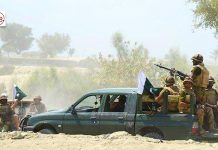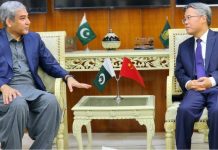Author: Sachaan Kambar
Analysing the participation of women in liberation movements reveals a significant presence, emphasizing that it is not solely the responsibility of men, but also of women, to engage in these endeavors. Across various historical periods and geographical contexts, women have made notable contributions to liberation causes.
For example, the Algerian liberation movement saw the involvement of Djamila Bouhired, while Leila Khaled played a crucial role in the Palestinian liberation struggle. Additionally, figures such as Banok Bilqees in Bangladesh and Lakshmi Bai in India demonstrated remarkable bravery and dedication to their respective liberation movements, with Bai’s courage even acknowledged by British soldiers.
Similarly, Baloch women, exemplified by individuals like Gull Bibi and Banok Karima, have actively pursued sovereignty and freedom, resisting oppression. Their ongoing commitment underscores the importance of women’s involvement in the Baloch nation’s struggle for liberation. This highlights the validity of Abdullah Öcalan’s assertion that “A national liberation movement without the participation of women is incomplete.”
If we see the current liberation movements, we find Kurdish women actively fighting for freedom against Turkey. Despite facing cultural barriers and gender inequality, Kurdish women are joining the struggle for Kurdistan’s independence. Abdullah Öcalan, leader of the Kurdistan Workers’ Party (PKK), emphasizes the importance of women’s participation in resisting colonial oppression and redefines honour in terms of defending the homeland. Öcalan’s ideology, including discouraging personal relationships in favour of the liberation movement, has persuaded many Kurdish parents to support their daughters’ involvement.
The PKK has a significant number of female members, with figures like Sakina and Zilan playing crucial roles in inspiring women to join the cause. Zilan’s Fidayee attack on a Turkish military parade in 1996 motivated others, like Layla Kaplan and Barmal Alias Geyar Outs, to follow suit. While attempts have been made to portray Geyar Outs’ actions as driven by personal grievances, a closer examination reveals a profound love for her homeland as the primary motivator. This sentiment is echoed throughout the broader liberation movement, underscoring the collective commitment to securing Kurdistan’s freedom.
When examining the role of women in the Tamil Eelam liberation movement, a significant presence of female fighters within the Liberation Tigers of Tamil Eelam (LTTE) emerges. This armed group advocated for the establishment of Tamil Eelam. From the outset of the Sri Lankan conflict in 1983, Tamil women assumed crucial roles within the movement. They transitioned from traditional household duties to active participation in battlefield combat against the Sri Lankan Forces.
Kala, a 23-year-old female cadre of the LTTE, was queried by Yumna Sangarasivam about her reasons for joining the LTTE movement. In response, Kala expressed, “When we witness the Sri Lankan army raping our sisters and mothers, abducting and murdering our brothers, and seeing our homes ablaze after aerial bombardments, where can we seek refuge? How can we live? I resolved not to succumb to such horrors. I refused to be a victim of the Sri Lankan army’s brutality. Witnessing the courage of other girls joining the movement convinced me that this was the only path to survival.” Kala’s sentiments echo those of Abdullah Ocalan, highlighting the imperative for colonized nations to resist their oppressors.
According to a July 2017 report by Al Jazeera, the Black Tigers, LTTE’s suicide unit, conducted over 300 attacks, with nearly 100 perpetrated by women. The inaugural Black Tiger suicide mission occurred on May 21, 1991, executed by 17-year-old Danu, resulting in the assassination of former Indian Prime Minister Rajiv Gandhi during his campaign in the Indian state of Tamil Nadu.
In addition to acknowledging Zilin of Kurdistan and Danu of the Tamil Tigers, we also recognize Djamila from Algeria and Leila Khaled from Palestine. Their actions highlight that gender should never impede one’s ability to challenge oppressive forces, particularly colonial powers.
Leila Khaled, born in 1944, holds a significant position in the history of the Palestinian liberation movement. As a member of the Popular Front for the Liberation of Palestine (PFLP), Khaled gained global recognition for her involvement in high-profile airplane hijackings during the late 1960s and early 1970s. Notably, her role in hijacking TWA Flight 840 in 1969 and attempting to hijack El Al Flight 219 in 1970 solidified her as a symbol of resistance against Israeli occupation, drawing international attention to the Palestinian cause.
Khaled’s participation in militant activities as a woman challenged traditional gender norms, highlighting women’s active and diverse roles in liberation movements. Her life stands as a testament to the significant contributions of women within broader liberation struggles.
Throughout the struggle for Algeria’s independence from French colonial rule (1954-1962), women played pivotal roles, defying traditional gender norms by engaging in various capacities, including combat, support, and organizational duties. One noteworthy event exemplifying this was the Algiers women’s demonstration in 1956, where thousands voiced their dissent against the French authorities, underscoring the indispensable role of women in the liberation movement.
One prominent figure from this era is Djamila Bouhired. Born in 1935, Bouhired emerged as a symbol of resistance and a leading figure within the Algerian National Liberation Front (FLN), attracting international attention for her anti-colonial activism.
Bouhired’s most notable contribution lay in her active participation in the FLN’s armed resistance, where she engaged in sabotage against French military targets and infrastructure. In 1957, at the age of 22, Bouhired was apprehended by French authorities, sparking widespread interest in her trial and elevating her to an international symbol of the Algerian struggle for independence.
Despite facing a death sentence, Bouhired’s punishment was ultimately commuted due to international pressure. She was released in 1962 upon Algeria’s attainment of independence. Djamila Bouhired endures as an iconic figure in Algerian history, embodying the courage and commitment of women who played a significant role in the nation’s liberation movement.
Similar to the courageous actions of women worldwide, the bravery and resilience of Baloch women have been evident across various times and regions as they have actively engaged in political, social, and other endeavours for the Baloch cause and freedom. Despite the prevailing notion that Baloch women are restricted to domestic confines and barred from participation in social or public activities, historical evidence refutes such beliefs.
The Battle of Chausa in 1539, between Mughal Emperor Humayun and Sher Shah Suri, vividly illustrates the unwavering commitment and valour of Baloch women. Mir Chakar Khan Rind, a renowned Baloch warrior, alongside his 18 sons and an army of 40 thousand, supported Humayun in his quest to reclaim the kingdom from Sher Shah Suri. Despite the formidable strength of Sher Shah Suri’s forces, the Baloch army initially retreated from the battlefield. Witnessing this, Bibi Banari Baloch, sister of Mir Chakar, took decisive action, rallying the Baloch army with her courageous display. Breaking her bangles as a symbol of determination, she brandished her sword, refusing to accept the shame of retreat. Banari’s fearless defiance inspired the Baloch forces to advance, greatly surprising Sher Shah Suri. When Banadi confronted Sher Shah Suri at his fort, he admonished her, claiming that women were unsuited for warfare. In response, Banadi fearlessly declared, “You may perceive women as confined to domestic roles, but our capabilities extend far beyond!” Her boldness serves as a testament to the remarkable feats Baloch women can achieve when their strength is recognized rather than underestimated.
Bibi Ganjan, wife of Mir Mehrab Khan Shaheed (former ruler of Kalat), not only served as her husband’s advisor but also fought alongside him as a comrade in numerous tribal conflicts. In 1839, when the British besieged Mehrab Khan’s Fort and martyred him, Ganjan Bibi valiantly led her people in resistance against the British, assuming all responsibilities.
Gul Bibi Baloch, hailing from the Iranian border region, played a pivotal role in history during the 1916 Indian government’s appointment of General Dyer to quell border uprisings. Upon learning of General Dyer’s control over Khawash Fort, Gul Bibi, wife of Shahsawar Baloch, confronted her husband and Sardar Jeeand Baloch for their submission. Demonstrating remarkable courage, she bravely faced General Dyer, freeing her husband and fellow prisoners from his grasp.
The valiant heritage of Baloch women persevered, evolving as Baloch women emerged stronger, defying colonial forces to safeguard their homeland and sovereignty. Among these stalwart figures stands Banuk Karima, whose significance in Baloch resistance history is profound. She staunchly opposed the oppressive policies of the Pakistani state, galvanizing her people to resist the colonizers.
Banok Karima joined the Baloch Students Organization, Azad, becoming a formidable advocate for the oppressed Baloch populace. While Baloch women were initially underrepresented in the cause, Banok Karima’s activism spurred many to join the struggle against injustice. Her involvement inspired other Baloch women to assume roles and contribute to the movement, defending their land and challenging state tyranny.
In response to the Baloch Students Organization’s resistance, the Pakistani government outlawed it in March 2013, resorting to abductions and extrajudicial killings to quash dissent. Despite grave risks, Banok Karima remained steadfast in her commitment to the Baloch cause. Amidst the organization’s ban, she revitalized the Baloch Students Organization, assuming its leadership in 2014 following the abduction of its previous chairperson, Zahid Baloch. This marked a historic moment as Banok Karima became the first Baloch woman to chair a student organization dedicated to opposing injustices faced by the Baloch nation.
A year after Zahid Baloch’s forced disappearance, Banok Karima led a monumental protest in Karachi, denouncing the widespread enforced disappearances of Baloch people. Despite relentless efforts by the state to silence her, including threats, violence against her family, and the destruction of her home, Banok Karima remained resolute in her struggle for her people.
In December 2015, she relocated to Canada to raise awareness internationally about the plight of the Baloch people, tirelessly advocating against Pakistan’s oppressive tactics. Her efforts were recognized when she became the first Baloch woman to be included in BBC’s 100 Women list for 2016, described as a champion for Balochistan’s independence.
Following her martyrdom in 2020, Banok Karima was posthumously honored as “Lumma-E-Watan” (Mother of the nation) by the Baloch nation, testament to her courage, bravery, and unwavering dedication to their cause. Though physically absent, her ideals continue to guide the Baloch people towards a future of freedom and sovereignty.
Like Banok Karima, numerous other Baloch women are at the forefront of leading the Baloch community, steadfastly resisting the injustices and oppression faced by the Baloch people. Among these influential figures stands Dr. Mahrang Baloch, whose courageous and determined stance in the Baloch resistance movement is commendable. Throughout Balochistan’s history, various protests, marches, and demonstrations have been staged to address the injustices and despotism experienced by the Baloch populace. However, under the leadership of Mahrang Baloch, the Baloch people have surpassed previous efforts, organizing mass protests and initiating the largest movement against the oppressive policies of the Pakistani government. Mahrang Baloch has emerged as the beacon who galvanized an entire nation and illuminated the path of resistance. Her unprecedented actions for the Baloch nation stand unparalleled.
At thirty years of age, Dr. Mahrang Baloch has become a symbol of hope for the Baloch people. Through her courage and valor, thousands of women from remote regions of Balochistan have stepped out of their homes, embracing the path of resistance. Mahrang has showcased to the world the strength of Baloch women, debunking the notion of their inferiority to any other nation.
The history of the Baloch nation vividly demonstrates that gender does not determine one’s role when the survival of the Baloch people is at stake. Baloch women play a significant role in the resistance efforts. Their involvement transcends the political realm, extending into the armed struggle for a free and sovereign Balochistan. Hundreds of Baloch women have taken up arms, bravely fighting against the Pakistani government.
One noteworthy example from the armed resistance is Shari Baloch, a thirty-year-old mother of two, an MPhil graduate, and a teacher. In April 2022, she carried out a self-sacrificing attack at the Confucius Institute at the University of Karachi. Another woman, Sumaiya Qalandrani Baloch, a member of the Baloch Liberation Army’s Majeed Brigade unit, conducted a similar act of resistance in June 2023. Sumaiya, who was pursuing a bachelor’s degree in Computer Sciences, targeted a convoy of the Pakistani military in the Turbat district of Balochistan. In addition to Shari and Sumaiya, numerous other Baloch women are actively involved in Baloch armed organizations, courageously fighting against the Pakistani government for the cause of a free and independent Balochistan.
The Pakistani state has employed various tactics to suppress and weaken the resistance of Baloch women, resorting to methods aimed at silencing their voices.
Baloch women have long adhered to Baloch feminism, which seeks to represent the Baloch people and their society. Nevertheless, prominent figures such as Banok Karima, Fadayee Shari Baloch, and Dr. Mahrang demonstrate that the state’s efforts to misguide Baloch women have failed. Baloch women understand who has marginalized them and who is attempting to divert their attention from their national responsibilities.
Moreover, Baloch girls are being told that their parents forbid them from pursuing education and confine them to household chores. In reality, the State is using religion as a tool to restrict Baloch women and confine them to domestic duties. Recognizing the power and resistance of Baloch women, the State opposes their education and utilizes religion to control them, labelling female education as haram, or forbidden in Islam.
An illustrative incident occurred in Panjgur District in May 2014, where Tanzeem-Ul-Islami-Ul-Furqan forcibly shut down all private educational institutions, particularly those offering education to girls. The organization distributed pamphlets warning private schools to cease girls’ education or face consequences. These pamphlets denounced female education as haram. Armed members of Tanzeem-ul-Islami-ul-Furqan attacked and set fire to a school van belonging to Oasis School, transporting female students in Panjgur on May 14. This incident led to the closure of educational institutions for over two months.
Observing such instances, it can be inferred that the state discourages education for Baloch girls, possibly to keep them unaware of their national duties. However, the choice ultimately lies with Baloch women—to either endure state oppression or to stand up for the Baloch cause and pursue a life of freedom.
In conclusion, the involvement of women in liberation movements transcends geographical and historical boundaries, highlighting their indispensable role in striving for freedom and justice. From Algeria to Palestine, from Kurdistan to Balochistan, women have exhibited remarkable courage and resilience in challenging oppressive forces and advocating for their nation’s rights. Figures like Jamila Bouhired, Leila Khaled, Banok Karima, and Dr. Mahrang Baloch symbolize the unwavering determination of women in the face of adversity. Despite facing suppression and attempts to impose foreign ideologies, Baloch women continue to assert their agency and resist injustice, embodying the spirit of Baloch feminism and contributing significantly to the struggle for a free and sovereign Balochistan. As history has shown, the empowerment of women is essential for the success and completeness of any liberation movement, reaffirming Abdullah Öcalan’s assertion that “A national liberation movement without the participation of women is incomplete.”
Disclaimer: The views and opinions expressed in this article are those of the author and do not necessarily reflect the official policy or position of The Balochistan Post or any of its editors.






























